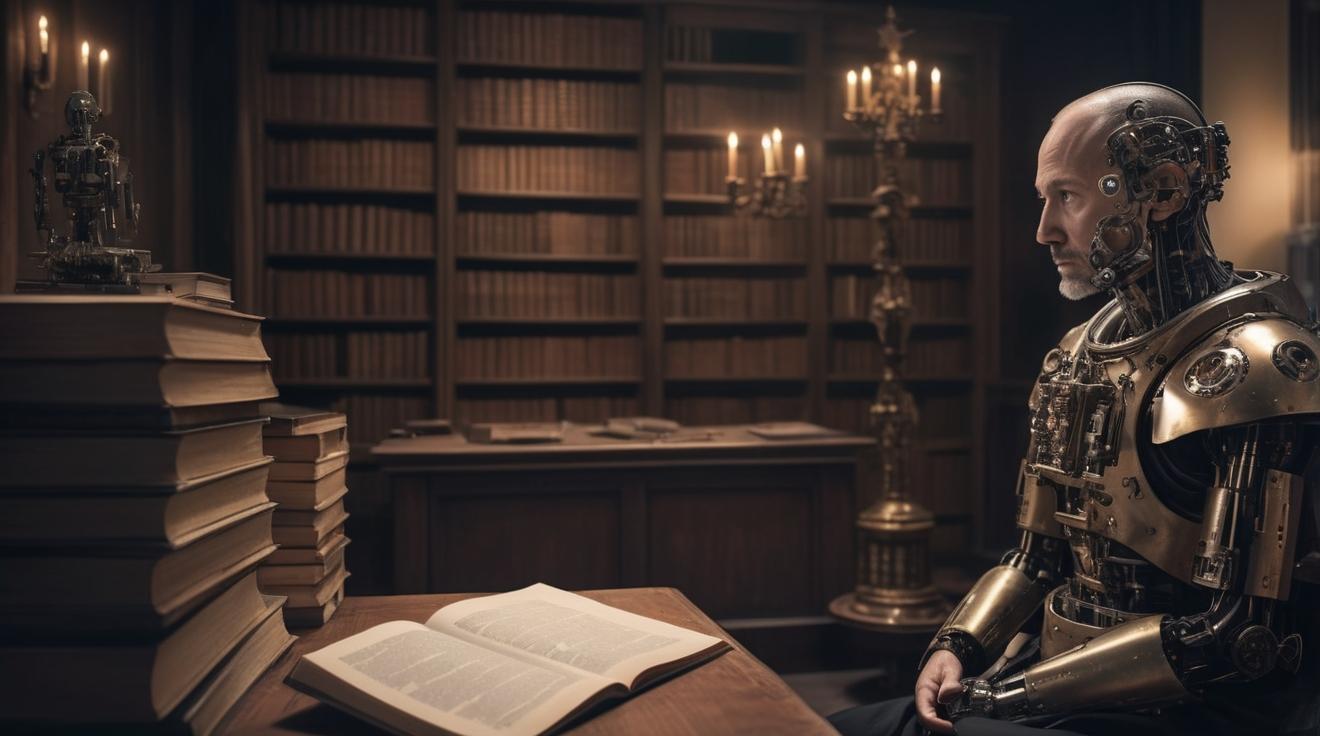AI, Embodiment, and the Faith to Understand the Difference
Lutheran Alliance for Faith, Science, and Technology
A recent meme circulating on social media poses a writer’s dilemma over AI usage. It questions why we are training AI to create more art and writing instead of performing mundane tasks like household chores, so humans can engage in more creative activities.
We all seek assistance occasionally, whether it's for writing a prayer, commentary, or an email subject heading. Yet, this has become a contentious issue over concerns that AI could potentially steal livelihoods or promote misinformation. This article delves into what AI implies about personhood, human-technology hybrids, and other significant matters.
AI and Personhood
Anthropomorphizing AI is becoming common, with people speaking to it as if it expresses genuine opinions. The quirky 2023 Peacock Series, “Mrs. Davis,” epitomizes this by depicting resistance to an omnipotent AI. It underscores the sentiment: "Don’t give it a name. No one calls Facebook Doug."
In Christian theological circles, the use of AI is both promising and met with skepticism. Pastors utilize it for writing prayers, and congregants increasingly turn to apps with AI components to explore the Bible. However, some view AI as preserving humanity in an afterlife by creating AI-generated content to remember loved ones.
The Role of Algorithms in Theology
Algorithmic use in theology is emerging, raising questions about the potential for false interpretations to alter faith practices. Those guiding AI's learning may influence how future congregants interact with the Word of God.
According to Mark Graves, research fellow and director at AI & Faith, “Recent advances in chatbot technology allow AI to be treated as a social agent, regardless of its actual agency.” Graves suggests that AI embodies a different type of existence than humans and lacks the 'coherent self' required to consider the social and moral impacts of its actions.
The Hybrid Future
Recent headlines highlight Elon Musk’s Neuralink technology receiving FDA approval to proceed with trials. Initially enrolling 10 patients, the trials aim to enable paralyzed individuals to move limbs through brain-computer interfaces. The first patient, Noland Arbaugh, can now browse the internet using his thoughts after a Neuralink implant.
There's also increasing discourse on achieving a “digital afterlife”, where AI might store elements of our essence, promoting digital immortality. Lutheran theologian Ted Peters expressed concerns about this, warning against discarding our physical bodies thoughtlessly. Peters emphasized that each person is more than their brain patterns, stressing the value of the physical body given by God.
Conclusion
The intersection of humans and technology remains complex. We are more than just our physical bodies or neuronal activity, and more than the technology we develop. This complexity ensures that AI will continue to both fascinate and captivate us with its potential.
Read more about advances in AI and theological perspectives on Lutheran Alliance for Faith, Science, and Technology
Related Topics:
- AI and Art
- AI in Theology
- Neuralink Developments
To stay updated with the latest news in AI and Technology, follow our newsletter.
For media inquiries, please contact press@examplesite.com.













